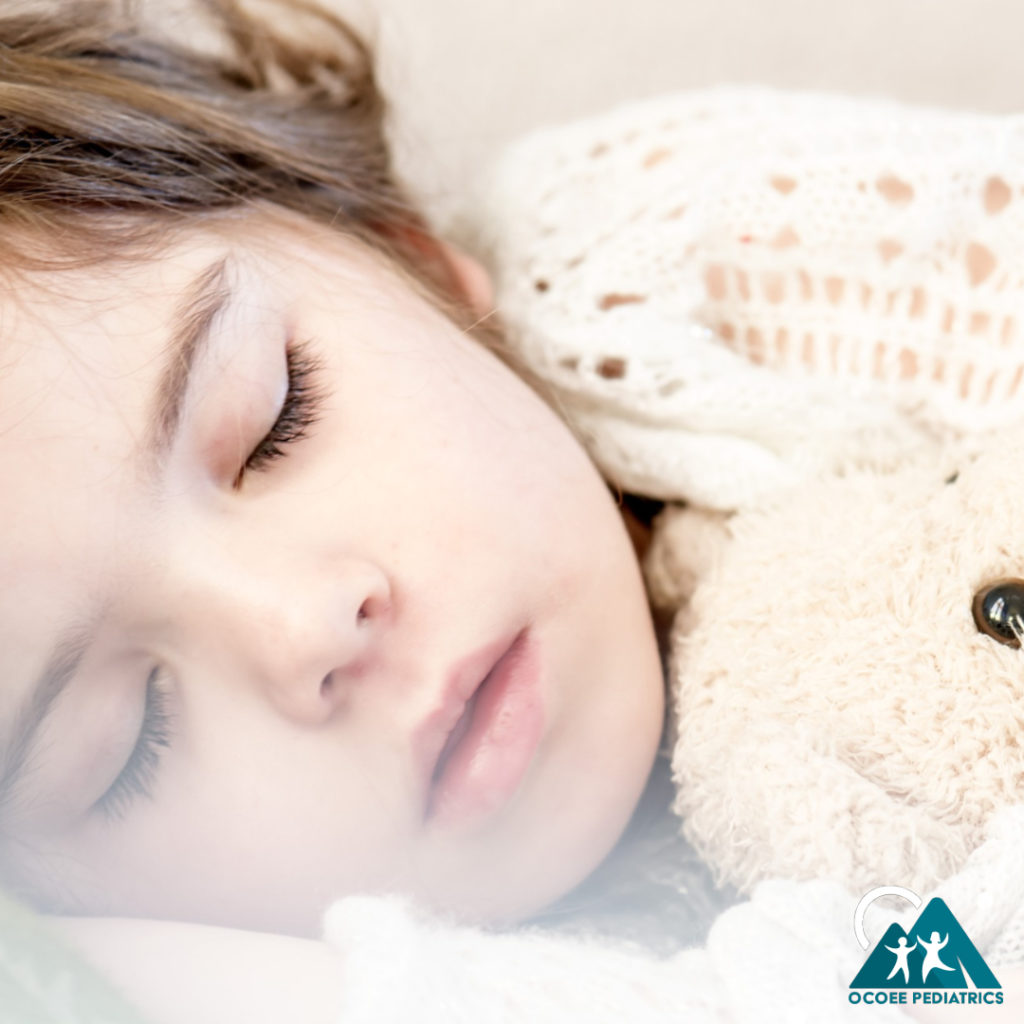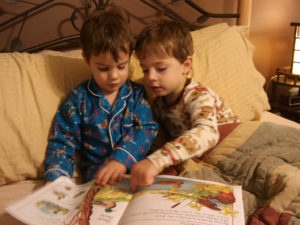Why Having A Bedtime Isn’t Lame

Bedtime at your house may be a dreaded time of day. Sometimes bedtime is worse than trying to get your little ones out of bed in the morning! Don’t worry, you’re not alone. A very common question that parents ask is, “How much sleep do kids really need?”
While it’s true that a 12-year-old doesn’t visibly suffer as much from missing a couple hours of sleep in comparison to a 4-year-old, a bedtime routine and sleep schedule is vital for a child’s growth and mental development. But, how do you know exactly how much your unique child needs to sleep each day? How do you know if they are experiencing “good” sleep while their eyes are closed? There are tons of other questions that you may have, and we hope to help answer some of those in this article.
Recommended Sleep By Age

Let’s say you have a toddler or elementary school age children. How much sleep does a three, four, five, or six-year-old need daily? Should their room be dark? Should they be able to fall asleep to a movie or television show?
According to the National Sleep Foundation, here are the recommended sleep time(s) for young children based on age.
-
One To Two – Toddlers typically need 11 to 14 hours of sleep per day. Most of this occurs at night, but most kids of this age do still need a nap that ranges from one to three-and-a-half hours long. At this age, nap time may not be as stressful as your little ones are pretty good about wearing themselves out during the day.
-
Three To Five – Preschool-age children usually need 10 to 13 hours of quality sleep per day. At age three, many kids are still napping, at age four, some are still napping, but most begin to fight naps by age five.
-
Six To Thirteen – During the elementary and early middle school years, kids typically require nine to 11 hours of sleep per day (and all of it at night).
Make Bedtime Fun

Instead of allowing your little ones to watch Paw Patrol or other mentally engaging shows at bedtime, try reading them a story or prep a warm bath to get them in sleep mode. You can even begin teaching healthy hygiene regimens from a very young age, especially around bedtime. Add into the daily bedtime ritual a fun version of brushing teeth, brushing hair, and picking out comfy PJs. As your little ones grow, they will remember these important parts of their bedtime routine.
Older Children Sleep & Schedules
Let’s say you have a 14-year-old high school freshman. For the last several years, you may have fought them to take naps or sleep in general. However, as their adolescence progresses, you may notice that your teenager has a newfound interest in getting some extra shut eye.
For example, he or she may stay up later at night and struggle to fall asleep at normal bedtimes. The National Sleep Foundation recommends that teenagers get, on average, 9-10 hours of sleep a night if possible. However, over 80% of adolescents do not get enough sleep every day.

This may seem like a feat that you may never conquer as a parent. Between the video games, homework, sporting events, and text messages, your teenager may try to use every excuse in the book to avoid a bedtime. After all, bedtimes are for kids right? Wrong.
If you are dealing with a teenager who struggles to stick to a normal sleep pattern, and who uses all the excuses in the book to explain away their lack of assimilation to the sleep schedule at your house, explain to them how you as an adult are not exempt from needing a good night’s rest too. You’re not a “lame” parent for enforcing a bedtime. Are they interested in sports? College?
Explain to them that sleep allows their body to recover from sporting events and for their muscles to expedite growth. Sleep allows the brain to rest and to intake and file away all that they learned during their time at school or even during homework! If they are needing a good score on the ACT, stop fretting so much and try sleeping!
You’re Not Lame For Having A Bedtime
So, whether you are a parent of young children or teenagers, just remember that sleep is important for people of all ages. That goes for you too! If you have any questions, we would be happy to help answer them. Give our office a call or schedule an appointment with one of our healthcare professionals on our website.